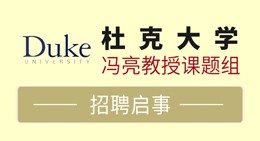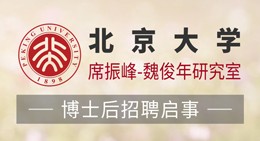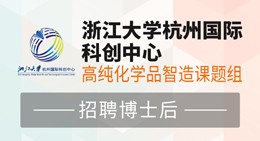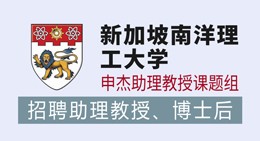当前位置:
X-MOL 学术
›
Energy Convers. Manag.
›
论文详情
Our official English website, www.x-mol.net, welcomes your feedback! (Note: you will need to create a separate account there.)
Empowering sea ports with renewable energy under the enabling framework of the energy communities
Energy Conversion and Management ( IF 9.9 ) Pub Date : 2024-07-01 , DOI: 10.1016/j.enconman.2024.118693 Annamaria Buonomano , Giovanni Francesco Giuzio , Robert Maka , Adolfo Palombo , Giuseppe Russo
Energy Conversion and Management ( IF 9.9 ) Pub Date : 2024-07-01 , DOI: 10.1016/j.enconman.2024.118693 Annamaria Buonomano , Giovanni Francesco Giuzio , Robert Maka , Adolfo Palombo , Giuseppe Russo
Port operations, essential for global trade, are energy-intensive and heavily reliant on fossil fuels. Transitioning to renewable energy can reduce their carbon footprint and enhance resilience and sustainability. Renewable Energy Communities (RECs) offer a collaborative and decentralized framework for integrating renewable energy into port facilities. However, port authorities and maritime stakeholders face challenges in design, implementation, and operations, particularly in estimating outcomes and benefits. Understanding the REC framework is crucial for port industry to address current priorities. This study provides guidelines for stakeholders on implementing single or multiple energy communities in ports. An energy and economic model, based on EU regulations and national laws, assesses the viability of RECs in ports. The model considers port energy usage and various production systems, such as solar and marine renewable energy technologies, and energy storage in a hybrid configuration to estimate variable demand profiles and explore renewable energy integration into the port energy system. The numerical model simulates virtual energy exchanges among multiple energy users and investigates the feasibility of shared energy projects in ports. The research comprehensively analyses technological and economic scenarios and examines the convenience of multiple virtual energy end-user aggregations. Results indicate that increasing renewable energy complementarity and rational system design can cover up to 60 % of total port energy demand and achieve 90 % renewable energy self-consumption. Incentives ensure a payback period under 6 years for large-scale hybrid energy systems and between 2 to 4 years for smaller power plants, highlighting significant financial benefits for voluntary members. Batteries enable higher renewable penetration in the port energy system, up to 15 %, with moderate economic impact. The virtual self-consumption scheme is promising, as economic incentives shift focus to design aspects that increase local renewable energy utilization. Policies encouraging the creation of multiple energy communities in ports can lower life cycle costs, with multiple virtual aggregations leading to €6M lower costs over 20 years compared to a single energy community comprising all main port users.
中文翻译:

在能源界的扶持框架下为海港提供可再生能源
对全球贸易至关重要的港口运营是能源密集型的,并且严重依赖化石燃料。转向可再生能源可以减少碳足迹并增强弹性和可持续性。可再生能源社区(REC)提供了一个协作和分散的框架,用于将可再生能源整合到港口设施中。然而,港口当局和海事利益相关者在设计、实施和运营方面面临挑战,特别是在估计结果和效益方面。了解 REC 框架对于港口业解决当前优先事项至关重要。这项研究为利益相关者在港口实施单一或多个能源社区提供了指导。基于欧盟法规和国家法律的能源和经济模型评估港口 REC 的可行性。该模型考虑了港口能源使用和各种生产系统,例如太阳能和海洋可再生能源技术以及混合配置中的能源存储,以估计可变需求概况并探索将可再生能源整合到港口能源系统中。该数值模型模拟了多个能源用户之间的虚拟能源交换,并研究了港口共享能源项目的可行性。该研究全面分析了技术和经济场景,并检验了多个虚拟能源最终用户聚合的便利性。结果表明,增加可再生能源互补性和合理的系统设计可以覆盖港口总能源需求的60%,实现90%的可再生能源自耗。 激励措施确保大型混合能源系统的投资回收期在 6 年以内,小型发电厂的投资回收期在 2 至 4 年之间,这凸显了自愿会员的显着经济利益。电池可提高港口能源系统中可再生能源的渗透率,高达 15%,具有适度的经济影响。虚拟自耗计划前景广阔,因为经济激励措施将重点转向提高当地可再生能源利用率的设计方面。鼓励在港口创建多个能源社区的政策可以降低生命周期成本,与包含所有主要港口用户的单个能源社区相比,多个虚拟聚合可以在 20 年内降低 600 万欧元的成本。
更新日期:2024-07-01
中文翻译:

在能源界的扶持框架下为海港提供可再生能源
对全球贸易至关重要的港口运营是能源密集型的,并且严重依赖化石燃料。转向可再生能源可以减少碳足迹并增强弹性和可持续性。可再生能源社区(REC)提供了一个协作和分散的框架,用于将可再生能源整合到港口设施中。然而,港口当局和海事利益相关者在设计、实施和运营方面面临挑战,特别是在估计结果和效益方面。了解 REC 框架对于港口业解决当前优先事项至关重要。这项研究为利益相关者在港口实施单一或多个能源社区提供了指导。基于欧盟法规和国家法律的能源和经济模型评估港口 REC 的可行性。该模型考虑了港口能源使用和各种生产系统,例如太阳能和海洋可再生能源技术以及混合配置中的能源存储,以估计可变需求概况并探索将可再生能源整合到港口能源系统中。该数值模型模拟了多个能源用户之间的虚拟能源交换,并研究了港口共享能源项目的可行性。该研究全面分析了技术和经济场景,并检验了多个虚拟能源最终用户聚合的便利性。结果表明,增加可再生能源互补性和合理的系统设计可以覆盖港口总能源需求的60%,实现90%的可再生能源自耗。 激励措施确保大型混合能源系统的投资回收期在 6 年以内,小型发电厂的投资回收期在 2 至 4 年之间,这凸显了自愿会员的显着经济利益。电池可提高港口能源系统中可再生能源的渗透率,高达 15%,具有适度的经济影响。虚拟自耗计划前景广阔,因为经济激励措施将重点转向提高当地可再生能源利用率的设计方面。鼓励在港口创建多个能源社区的政策可以降低生命周期成本,与包含所有主要港口用户的单个能源社区相比,多个虚拟聚合可以在 20 年内降低 600 万欧元的成本。












































 京公网安备 11010802027423号
京公网安备 11010802027423号